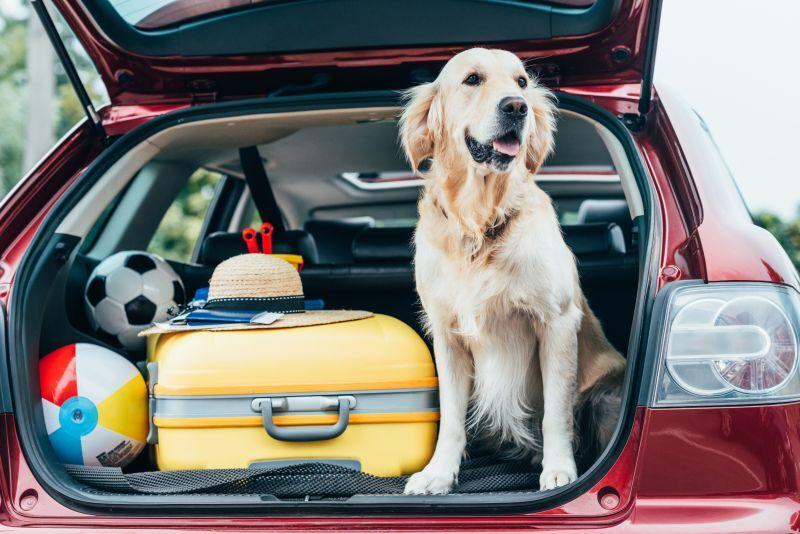This page has been automatically translated. Please refer to the page in French if needed.
Vacation departure
Pet: have the right reflexes for the summer!
Publié le null - Legal and Administrative Information Directorate (Prime Minister)
What if you can't bring your pet this summer? How to protect it from heat? What if you come across an animal in distress? As summer approaches, the Ministry of Agriculture offers you a practical guide to take care of your pet during this period. Service-Public.fr also reminds you of the launch of the government's campaign against pet abandonment.

The summer period is often marked by many abandonments. As part of this, the government is launching a campaign to combat the abandonment of pets recalling that owning a pet is your responsibility!
A guide to good practice!
You have a pet and you wonder about its care this summer or about the care to give it?
The Ministry of Agriculture has developed a practical guide that answers all the questions you need to ask yourself if you are keeping a pet: To take good care of your pet.
Here you will find answers, practical advice and useful contacts on these different topics:
- What if you come across a dog or cat in distress?
- You go on holiday and you can't take your pet: what childcare solution?
- What can you do for your pet when it gets too hot?
- You plan to travel with your pet: what are the formalities?
Please note
in France, abandonment is punishable by 3 years in prison and a €45,000 fine.
Reminder of actions needed in case of high heat
Recurrent high temperatures in summer require special attention. Leaving an animal alone for too long can be dangerous.
Here are the good things to do every day:
- Remember to renew your pet's water frequently (every four hours).
- Make sure they are eating enough and enough to eat.
- Continue to make him do physical activity (play, walk...) while being reasonable.
- Ensure access to shade and fresh rooms.
- Never leave your pet alone in your vehicle.
- Check the condition of its bearings in the face of heat and the floor covering.
- Be alert for signs of dehydration (excessive tiredness, difficulty in feeding...).
Please note
if you are not sure, contact a veterinary medical professional.
Useful numbers
If you come across an animal in distress, be sure to take all precautions to avoid being bitten or stressed. Then you can contact:
- The city council and/or the municipal police.
- The nearest shelter.
- The employees of service stations or motorway businesses, they are in contact with the services of the communes.
- I-CAD (Domestic Carnivore Identification Service) on 09 77 40 30 77 or make an online declaration of a found animal.
- Or take the animal to a veterinarian.
Additional topics
Service-Public.fr
Service-Public.fr
Service-Public.fr
Ministry of Agriculture
Agenda
Apprentissage
Jusqu'au 17 mai 2024
Publié le 03 mai 2024
Impôts
À partir du 11 avr. 2024
Publié le 11 avril 2024
Prévention Covid-19
À partir du 15 avr. 2024
Publié le 18 mars 2024
Calendrier scolaire
Du 6 avr. au 12 mai 2024
Publié le 15 mars 2024

